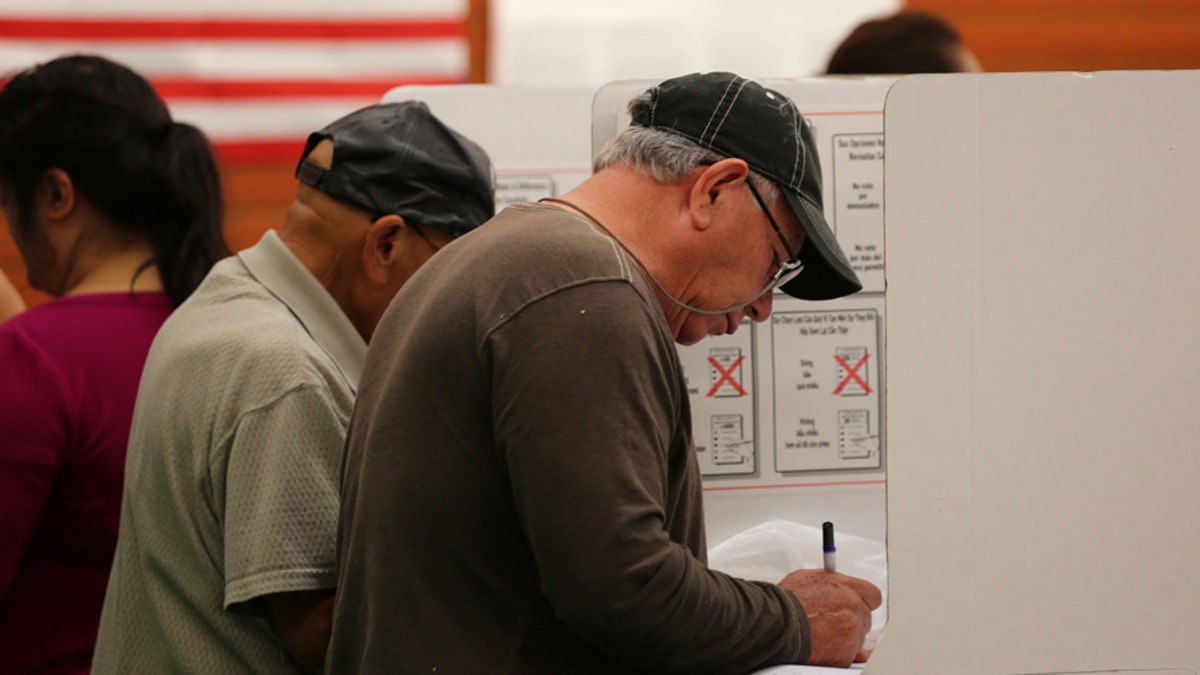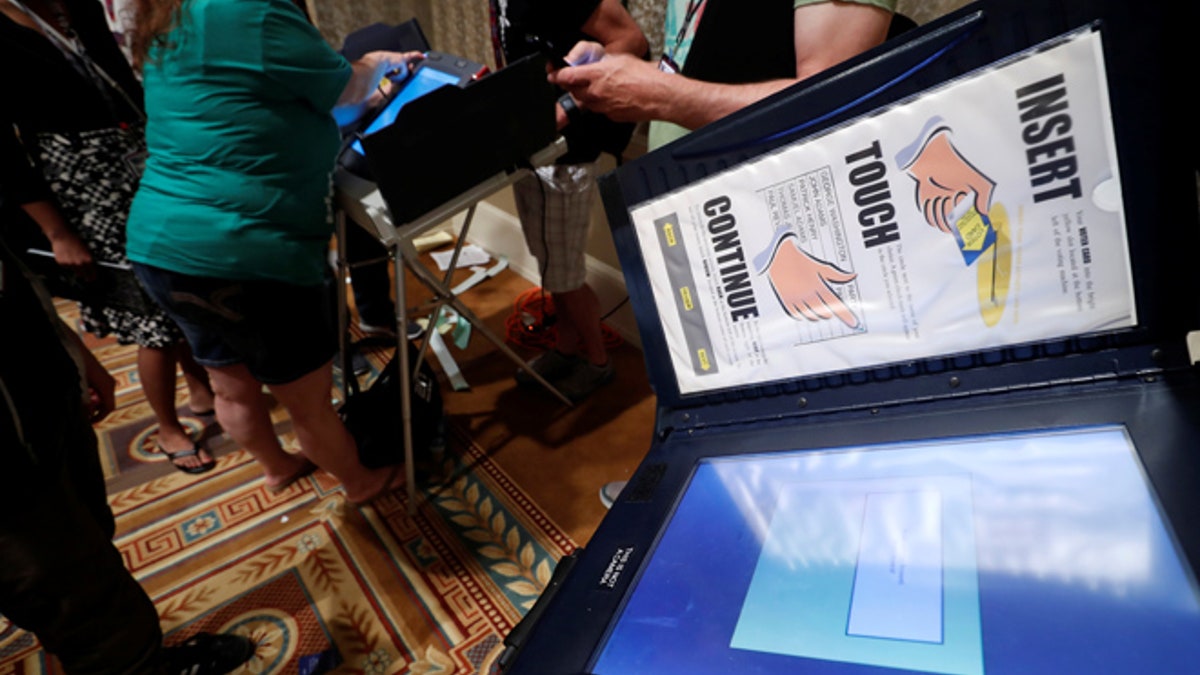
California voters are seen casting ballots in the November 2016 election. California is one of the states where local jurisdictions use 'ranked-choice voting,' something Maine is struggling to implement statewide. (Reuters)
When voters in Virginia head to the polls this November, they’ll be casting their ballots the old-fashioned way.
The state’s Board of Elections decided earlier this month to de-certify the widely used Direct-Recording Electronic (DRE) voting machines ahead of the gubernatorial election – prompting counties and cities to replace their touchscreen machines with those that produce a paper trail.
Virginia is not alone. Several states are now considering a return to old-fashioned paper ballots or a reinforced paper trail so results can be verified, amid concerns over hacking attempts in last year’s presidential race as well as longstanding cybersecurity worries about touchscreen machines.

Hackers look over real voting machines in a Voting Machine Hacking Village during the Def Con hacker convention in Las Vegas, Nevada, U.S. on July 29, 2017. REUTERS/Steve Marcus - RTS19ONC (REUTERS)
“Our No. 1 priority is to make sure that Virginia elections are carried out in a secure and fair manner,” James Alcorn, chairman of the State Board of Elections, said in a statement, calling the move “necessary to ensure the integrity of Virginia’s elections.”
The Virginia decision was linked in part to vulnerabilities exposed during a July 2017 hackathon. At the annual DefCon Conference in Las Vegas, hackers were able to breach the security of over 30 different types of voting machines. One hacker reportedly boasted of being able to breach the systems in as little as 90 minutes.
HACKERS EASILY BUST INTO VOTING MACHINES, IN CONFERENCE CHALLENGE
A chief concern with Virginia’s machines was that they leave no paper trail, making voting discrepancies nearly impossible to prove. Virginia was already planning to move away from the touchscreens, but will now accelerate the shift to optical-scan ballots, in which voters fill out a paper ballot to be deposited and recorded in an electronic system.
A paper trail will ensure officials can verify election results if necessary in the fall.
“The security of the election process is always of paramount importance. The Department is continually vigilant on matters related to security of voting equipment used in Virginia,” state Commissioner of Elections Edgardo Cortés said in a statement.
Right now, a patchwork of different voting systems is in place across the country – typically, optical-scan ballots that are filled out and scanned; the DRE systems like touchscreen machines; or some combination of the two. According to the Pew Research Center, almost half of registered voters live in places that only use optical-scan systems, but nearly 30 percent live in places that use only DRE systems. The majority of those do not leave any paper trail that can be used for hard-copy recounts.
Earlier this week, the Rhode Island General Assembly also approved a bill requiring the state to perform an audit of paper ballots after an election. The legislation was introduced by state Sen. James C. Sheehan and state Rep. Edith Ajello, both Democrats, in conjunction with the advocacy group Common Cause.
John Marion, executive director of Common Cause Rhode Island, told Fox News that this legislation grew out of a 2013 effort to introduce a pilot program of election auditing that did not pass. It was reignited, however, after improperly programmed voting machines led to inaccurate results on a North Kingstown, R.I., ballot question during the 2016 election. Though the issue was fixed, the decision was made to introduce legislation for mandatory auditing.
“We think it will both be a good practice for the state to undertake and to verify that the machines we are using are counting the ballots correctly and in turn that will enhance people’s confidence that when they cast their vote that their vote is actually counting,” Marion said.
Marion noted that while Rhode Island actually moved to include paper ballots in 1998, they have been behind in adopting an audit system. The bill, which is headed to the governor’s desk, would allow for audits to start as early as the 2018 election, with a mandated start date of 2020.
Meanwhile, an effort in Georgia is underway to bring back a paper trail for ballots, something that was phased out in the state back in 2002, according to the Atlanta Journal Constitution.
Paper-ballot voting is not a foolproof system, either, as seen in the 2000 election between George W. Bush and Al Gore. During the Florida recount, the infamous “hanging chads” -- incomplete and indistinguishable holes punched on the state’s butterfly ballot -- caused so much uncertainty the recount eventually made its way to the Supreme Court, where the election was decided.












































